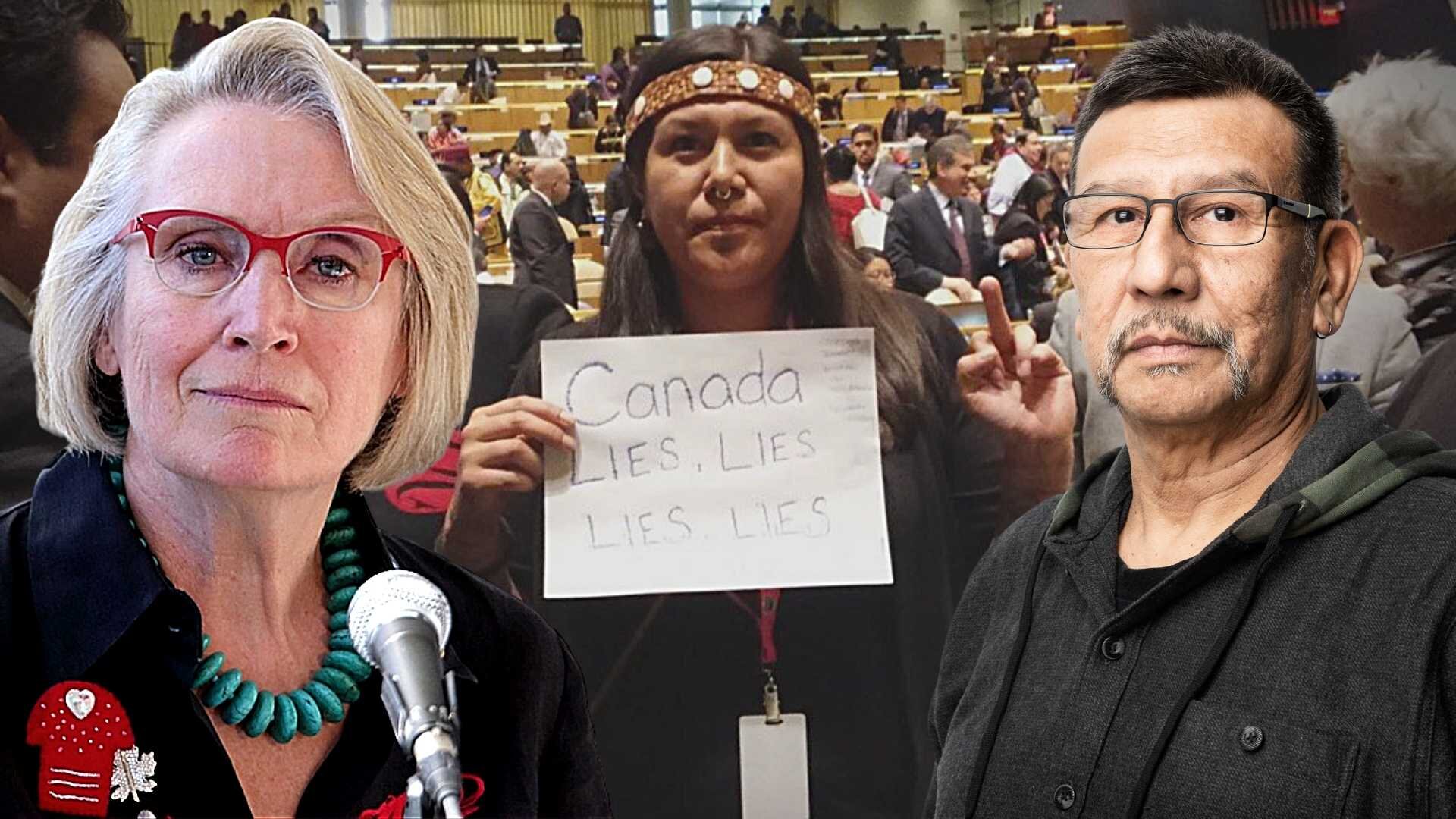Written By Guest User, Posted on June 17, 2020

On Tuesday, during an online meeting of the Indigenous and Northern Affairs Committee, Arnold Viersen, MP for Peace River – Westlock pressed Crown-Indigenous Relations Minister Carolyn Bennett for answers on the federal government’s delayed National Action Plan response to the National Inquiry Into Missing and Murdered Indigenous Women and Girls (MMIWG).
Highlighting the impact of a delayed government response, Viersen brought up the case of Lubicon Lake Chief Billy Joe Laboucan, who lost his youngest daughter. National Indigenous organizations have given the federal government a failing grade for delay of the report.
The MMIWG report, released a year ago in June of 2019, contained four major calls for action:
Establishing a National Indigenous and Human Rights Ombudsperson and a National Indigenous and Human Rights Tribunal
Developing and implementing a National Action Plan to ensure equitable access to employment, housing, education, safety, and health care
Providing long-term funding for education programs and awareness campaigns related to violence prevention and combating lateral violence
Prohibiting the apprehension of children on the basis of poverty and cultural bias
The committee interchange between Viersen and Minister Bennett went as follows:
Mr. Arnold Viersen (Peace River—Westlock, CPC): Thank you, Mr. Chair. Thank you to our guests and witnesses for being here today. I also want to thank Mr. Powlowski for giving us this great tour of his house trying to find some headphones earlier. I appreciate that, too.
My questions will be directed to Minister Bennett. Thank you for being here. With 14 first nations in my riding, the National Inquiry into Missing and Murdered Indigenous Women and Girls matters a lot to many of my constituents. One of the chiefs, Chief Billy Joe, lost his youngest daughter, Bella Laboucan-McLean, a few years back in Toronto. Initially the Toronto police called her death a suicide, and then later that was changed to a suspicious death. To this day, the family doesn’t have any answers, and we continue to look for answers. We’re looking to have the response to the national inquiry help out with that.
Your mandate letter calls for you to lead the response to the inquiry, but it appears the national action plan launch has been postponed. Minister Bennett, can you confirm that it has indeed been postponed?
Hon. Carolyn Bennett: Thank you for the question. Chief Laboucan and Bella’s story is one that really underlines how much work we have to do. This was a tragedy that happened here in Toronto. I think we are feeling now the family liaison units that were set up at the launch of the commission itself are helping families navigate the justice system in a better way and better able to access healing. I think there have been families where, like the documentary the FILU here in Ontario commissioned, Audrey’s Story, where the chief coroner has reopened the case, but I think, again, this is about justice for the families, healing for the families and survivors, as well as putting the concrete measures to stop this tragedy.
Because this is the first-ever national inquiry, it means that all the provinces and territories are working on their plan, their chapter, as well as, though, the distinctions-based lens that will allow first nations, Inuit and Métis and the twospirited gender diverse people have their own views in a national action plan. But I think, Arnold, the thing that really matters is that it works. It can’t be a national action plan that sits on a shelf. That’s why the money in the supplementary estimates today is so important, as it will allow us to choose the indicators, work with families and survivors and make sure we’re measuring, adapting, measuring, adapting and getting the results, as we cannot let those families and survivors down.
Mr. Arnold Viersen: On what date can we expect the release of this national action plan?
Hon. Carolyn Bennett: We are working as hard as we can. As I had said, when it became clear we weren’t going to make it this month, around the anniversary of the final report, we will work continuously to be able to get the kind of report the families and survivors will see is serious and accountable. We are working with the provinces and territories, all of the provinces and territories. In your province Minister Wilson has been amazing. I spoke with the Alberta’s Advancement of Indigenous Women organization this morning. There is lots of work to do and we want to make sure this is an effective plan that will stop this national tragedy.
Mr. Arnold Viersen: Will your government be supporting all of the Calls for Justice from the inquiry?
Hon. Carolyn Bennett: We’ve received them all, and we are now engaging with our partners to develop a national action plan which will outline the priorities of our partners to be able to put in place concrete action to stop the tragedy. As you know, our website documents the actions to date. As we said, we wouldn’t wait for the final report to put in place the kinds of things that Mumilaaq talked about, whether that’s the kind of things around shelters, changes to Child and Family Services or what we are living right now, dealing with the racism and sexism in our institutions. The national action plan will…okay.
Following their exchange, Viersen released a statement criticizing the Minister’s responses.
>
“I am disappointed that the government refuses to even provide a new date for the release of this important report and instead blames the delay on Covid-19. Families have been waiting long enough. At the same time, the Minister is asking for $6 million in additional funding to respond to the Inquiry. Without the government’s response, how will anyone know if the funding is actually going to help the families of missing and murdered Indigenous women and girls?”
Hey there You have done a fantastic job I will certainly digg it and personally recommend to my friends Im…